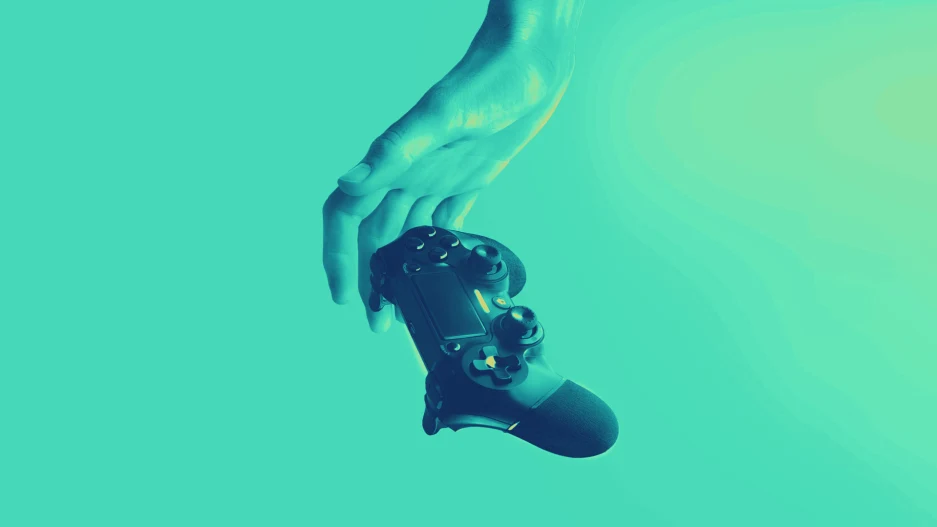- | 4:28 am
This startup is using video games to treat health conditions

Video games catch a lot of flack from critics who say the medium can be harmful to players. But the science on that claim is murky, at best. Now, one of the video game industry’s veteran executives is teaming with a medical device expert to make games that are specifically designed to help treat health conditions.
DeepWell Digital Therapeutics, which launched Tuesday, plans to make video games that both entertain and provide treatment for a variety of issues, including mental health, one of the fastest growing areas of concern for health professionals, especially among children and teens.
“Mental health is where we intend to focus, and one of many underserved areas of healthcare where video games can have a major impact,” cofounder Ryan Douglas tells Fast Company. “Games both provide a level of engagement and an actual therapeutic enhancement for mental health treatment. They open people up to think and act in a different way through self-actualization, biofeedback, agency, and role play, and can accelerate learning of new skills through increased neuroplasticity.”
Deepwell is the creation of Mike Wilson, cofounder of esteemed indie game developer Devolver Digital, and Douglas, who was founder and former CEO of medical device company Nextern. They’re backed by an array of experts in both health care and game development.
“Our medium is often harshly judged for its perceived negative impacts on the mind and body,” says Wilson. “But . . . video games can be good for you, and, thanks to global digital distribution, they’re an important tool to make treatment affordable and accessible. Moreover, with games that are legitimately fun, patients and players will seek out their positive benefits again and again.”
Wilson knows a thing or two about fun games. He’s been the business guy for Doom creator id Software. He was a cofounder of Ion Storm and instrumental in recruiting Warren Spector to that team. He colaunched the industry’s first developer-driven publisher, Gathering of Developers. And, of course, he’s cofounder of Digital Devolver, the now-publicly traded company behind the popular battle royale game Fall Guys: Ultimate Knockout.
“This is a crusade to change the way our whole industry and audience looks at games,” he says, “reshaping both the intention of the creators and the players.”
Researchers have been promoting the health potential of video games for years. In 2015, for example, Ubisoft and Montreal’s McGill University teamed up to create a game designed to help people with amblyopia, better known as lazy eye. That title, Dig Rush, is only available by prescription. It utilizes both eyes to train the brain, using different contrast levels of red and blue and a specialized pair of stereoscopic glasses.
There are many other examples. A 2015 study from the University of Freiburg in Germany found that story-based games could be beneficial for people with autism, satisfying their need for socialization. And several studies have found that incorporating video games into physical therapy can help people with Parkinson’s disease improve both their balance and gait as well as their mental faculties.
Others are exploring the gamification of healthcare as well. Companies like Sensorium are hoping interactions in the metaverse can provide relaxation and companionship to help improve the mental health of players.
The DeepWell method is a bit different, though. It has developed a suite of processes that follow FDA guidelines and help ensure regulatory requirements are addressed during the development and deployment phases. And, beyond creating its own titles, it hopes to help developers whose games don’t begin with a specific health focus to identify in-development video games that could potentially be beneficial for treating medical conditions. Games that are selected can leverage DeepWell’s toolkit to incorporate therapeutic technology, and the team will work to secure the approvals necessary before it can be used as a treatment option. And, as Devolver Digital did with indie titles, DeepWell will also act as the publisher for that game.
That should let the company ramp up quickly—and start to fulfill its mission of showing that games can be more than just entertainment. The first slate of games is due in 2023.
“Now that we’ve come out publicly with what we’re doing, we will be actively engaging with a wide range of publisher and developer partners,” says Wilson. “If I had to guess, I’d say we ship our first originally produced game—[and] maybe one more—next year, and then have another six to eight partner games, and more importantly [have] our platform complete to help guide players to the right games for them.”







































